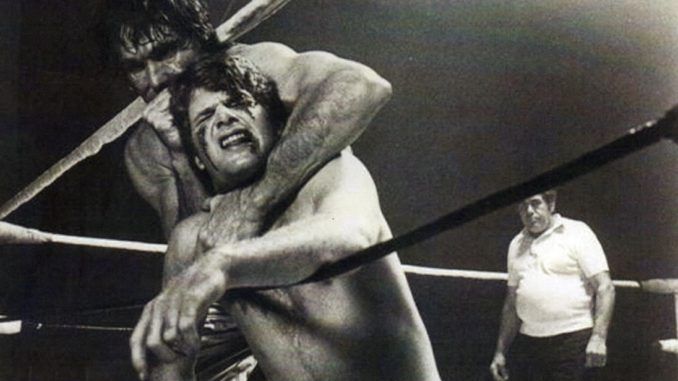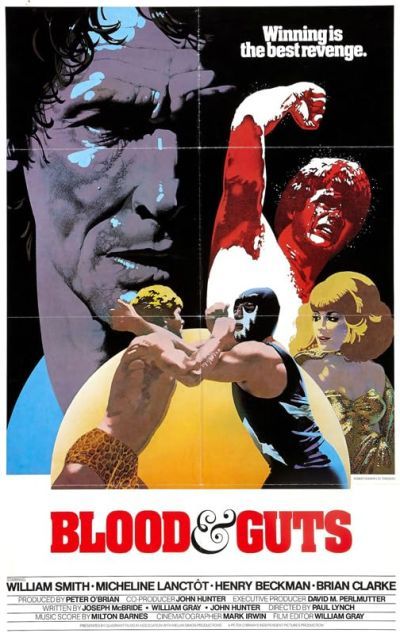
Rating: C+
Dir: Paul Lynch
Star: Brian Patrick Clarke, William Smith, Micheline Lanctôt, Henry Beckman
Despite being made close to half a century ago, I suspect not a great deal has changed about the world of independent pro wrestling, especially in the lower tiers. The only thing which separates this significantly from things like the TV show Heels, is this has a touching faith in kayfabe. That’s the carny term for the belief the outcome of wrestling bouts are not predetermined, decided in order to further story-lines. This was very much a thing back in the day, but now everyone over the age of eleven – at least tacitly – knows pro wrestling is physical performance art. [And no less impressive for it, I stress] Here though, matches are depicted as genuine sporting competitions. It’s odd, because the rest is largely grubby reality.
Veteran wrestler Dan O’Neill (Smith) has been touring as part of a federation run by owner Red Henkel (Beckman). They are stuck in grotty venues, partly because they’ve been squeezed out of larger ones by an old beef between O’Neill and Jake McCann, who is now a successful promoter. They bring on board rookie Jim Davenport (Clarke), as a baby face, and after going through a range of characters – the Red Indian one has aged particularly poorly – settle on “Jungle Boy,” a Tarzan knock-off. It works rather too well for Dan, who sees his popularity eclipsed by the rising start of the newcomer. Matters are not helped by Jim being caught in bed with Dan’s valet and girlfriend, Lucky Brown (Lanctôt).
 McCann tries to buy Jim’s contract, and when Henkel refuses, things turn violent. Jim puts things on the line in a match against McCann’s chosen champion, bearing the ominous name of the Demon (real name Kinski, which may actually be more scary!). There’s probably no prizes for guessing how it ends, and really, the high-level plot is probably the least important, and certainly the least impressive thing here. Apparently, it was originally conceived as a period piece, before a penny-pinching producer gave himself half the budget: that might explain things like Henkel’s fondness for Glenn Miller. But what still works, regardless of era, are the characters, and the relationships between them, born largely of shared experience on the road.
McCann tries to buy Jim’s contract, and when Henkel refuses, things turn violent. Jim puts things on the line in a match against McCann’s chosen champion, bearing the ominous name of the Demon (real name Kinski, which may actually be more scary!). There’s probably no prizes for guessing how it ends, and really, the high-level plot is probably the least important, and certainly the least impressive thing here. Apparently, it was originally conceived as a period piece, before a penny-pinching producer gave himself half the budget: that might explain things like Henkel’s fondness for Glenn Miller. But what still works, regardless of era, are the characters, and the relationships between them, born largely of shared experience on the road.
Jim may be the film’s hero in conventional terms, but “Dapper” Dan (as his Irish wrestling character is named), is really its emotional heart. It feels like he may have inspired Mickey Rourke in The Wrestler, in that both men are fighters who are painfully aware they can’t take Father Time down forever, but know no other way of life. Smith both looks and acts the part, alternating between macho bravado and acceptance of the fact that his fame is waning. In comparison, Jim is about one-tenth as complex, and roughly as interesting. There’s also a dumb subplot involving Lucky’s ex-husband, that isn’t very good. If only the makers had realized what they had, and focused on what works. It does enough right elsewhere to make for a decent watch, one which doesn’t feel especially dated.
